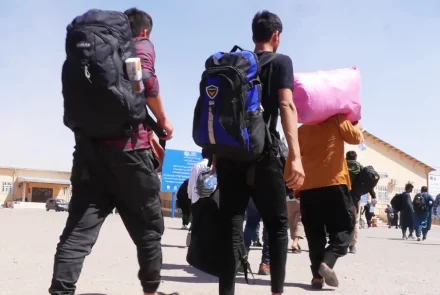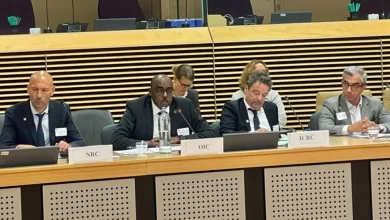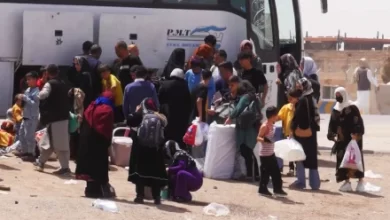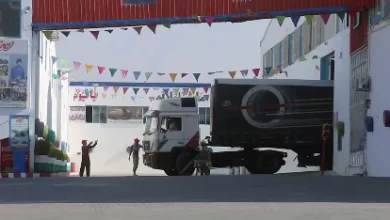Concerns Rise Over Returnee Crisis, Lack of Humanitarian Aid Funding

Amid increasing pressure on Afghan migrants in neighboring countries, more than two million people have been forcibly returned to Afghanistan over the past two years.
However, with the return of these migrants, concerns have grown over how they will be supported inside Afghanistan. Ahmad Reza Afshar, a deportee from Iran, told : “Afghan migrants who do not have proper documents are considered undocumented there, and they are deported from wherever they are caught. It doesn’t matter to them who the person is.”
Another Afghan citizen deported from Pakistan said: “We even had documents, but they still arrested and deported us. All of our belongings and assets were left behind.”
The Norwegian Refugee Council (NRC) has warned that only 20% of the humanitarian programs for Afghanistan in 2025 are funded so far. This situation may expose returnees to new crises such as poverty, homelessness, and social vulnerability.
Due to this funding shortfall, some support centers for returnees, such as the Jalalabad center, have scaled back their operations.
Jan Egeland, Secretary General of the Norwegian Refugee Council, said: “Afghans forced to return often had to leave everything behind. They are in urgent need of assistance. Our NRC staff at border crossings witness how returnees arrive empty-handed and often have nowhere to go. By mid-2025, humanitarian partners in Afghanistan will be less than 20% funded. At NRC, we’ve had to reduce support at our community center in Jalalabad. Without increased funding, we cannot meet the growing needs.”
Abdul Nasir Rashtia, an economic affairs analyst, told: “Since Afghanistan’s economy has long depended on foreign aid, any reduction or cut in this aid inevitably leads to serious problems, especially for those returning from abroad. They need food and shelter, and under current sanctions and restrictions, it will be very difficult for the Afghan government to manage this crisis.”
Meanwhile, migrant rights activists warn that without immediate support and sustainable livelihood programs, families returning from other countries will face severe poverty, homelessness, and social harm.
Ali Reza Karimi, a migrant rights activist, said: “Without urgent support and a long-term plan to improve livelihoods, the lives of families forcibly returned from neighboring countries will become even more difficult. The absence of basic aid could significantly increase poverty, unemployment, and vulnerability in Afghan society and among families.”
Earlier, UNHCR reported that between October 2023 and the end of May 2025, more than 1.055 million Afghan citizens had returned from Pakistan to Afghanistan.



